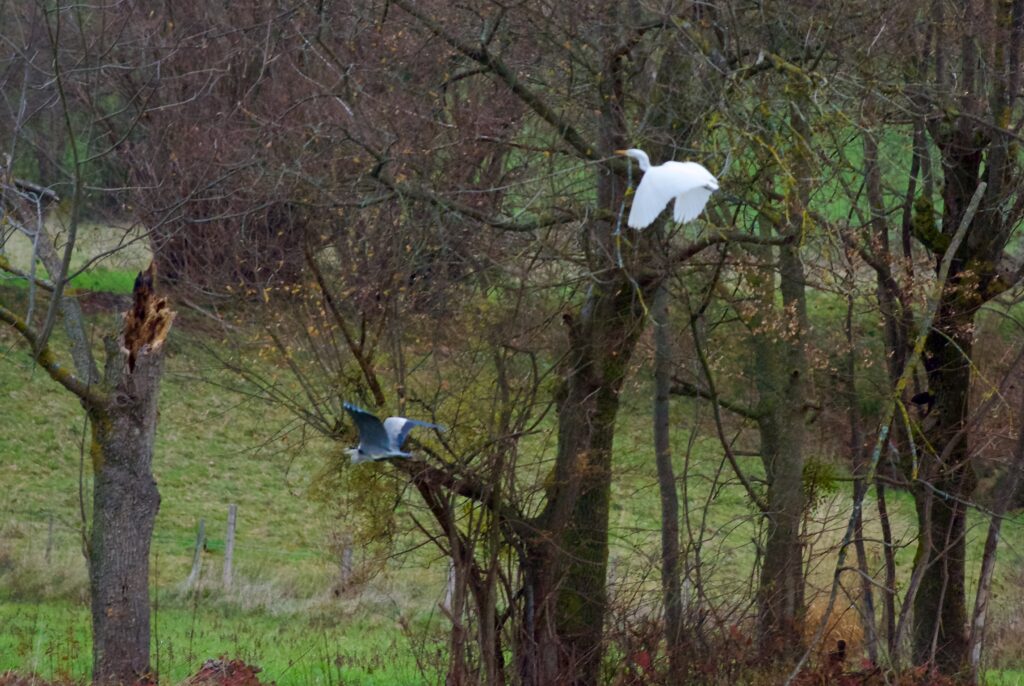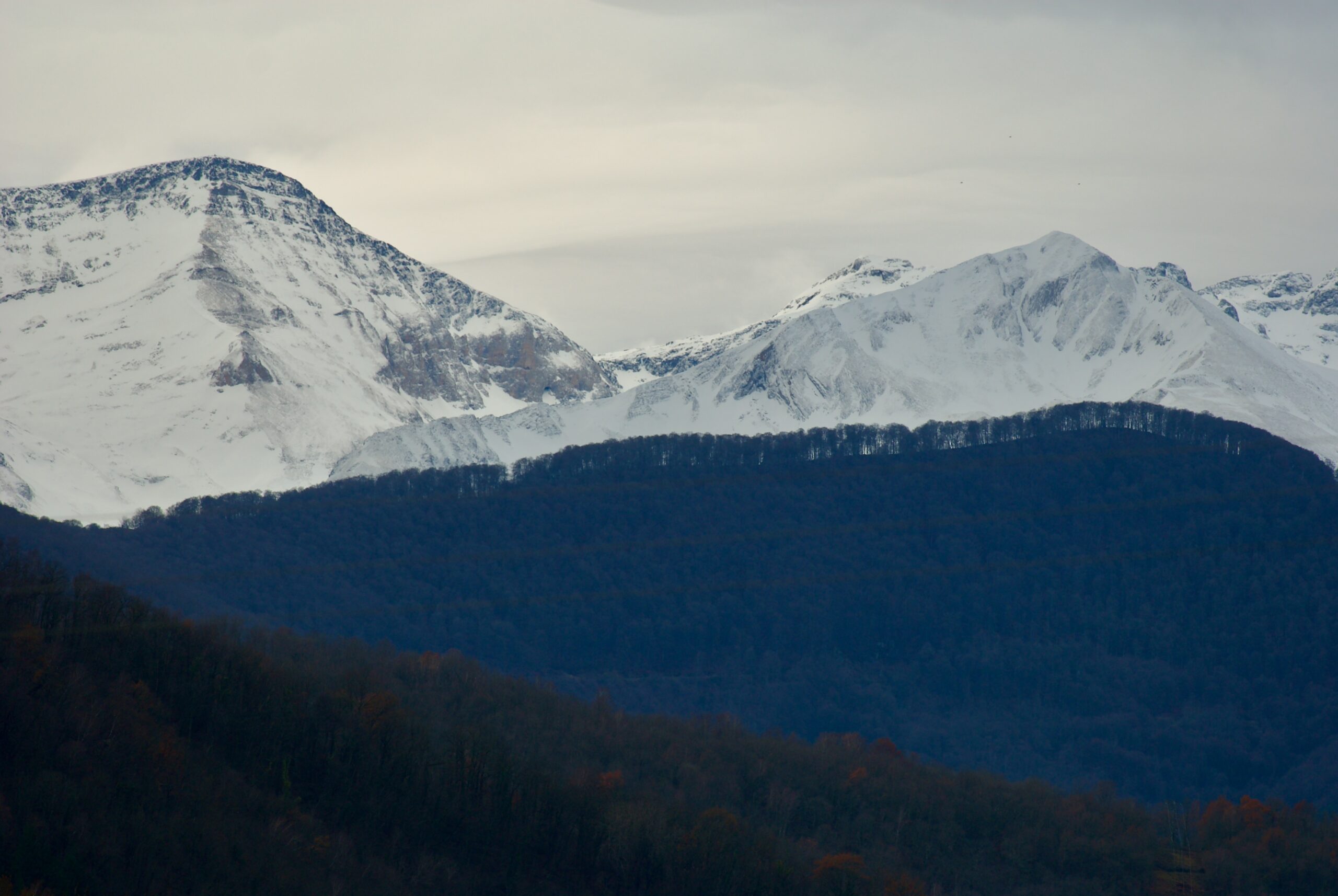It has been 9 months since I initiated a transition from astrophysics to ecology research, and since it is the end of the year, time for a first assessment in the form of a twisty Xmas tale that ends, well…I’ll let you readers be the judge.
Nine months is a short period of time to start a research project from scratch in a new field, especially when you have to deal with a myriad other things in parallel. 2023 has been pretty loaded for me on this front, in terms of group responsabilities at IRAP, applications of different kinds, astro research and paper writing, student supervision, and suffering bouts of depression. Based on my experience and personal pace and approach to research, I did not really expect to obtain some first research results in ecology in such a short time, and haven’t. Honestly, all I wanted for Xmas back in March was a new horizon, perspectives, excitement to find some good projects and new interesting colleagues in Moulis to get the ball rolling.
So, how did this play out ?
Science
First, and most importantly, the science ! With a few of my colleagues at the SETE in Moulis (and also in Toulouse in the EDB lab), we have found some clear common ground for new, exciting research, and I now have a clear, ambitious numerical modelling project brewing on the multiscale dynamics of biodiversity, communities and metacommunities. I have also come up with a few cool ideas to make this happen in connection with some trusty old colleagues in astrophysics and in other fields. Overall, I am very excited about what I have framed, developed and achieved so far, notably this autumn, and I can’t wait for what’s coming up next year. In fact, I have not felt so excited about research for several years. So, in a sense, that’s mission #1 accomplished: sense is making its way back into my research life.
As I get into these first projects, I am also starting to learn about biology for the longer term benefit and developments of my research. It is quite funny that I find myself diving into this with the ingenuity of a freshman, as I largely shunned life sciences during my studies, obsessed that I was with physics and astro (I was very interested in biologists as a student, especially girl ones, but for hmmm well completely different reasons, although they have to do with life sciences too). I have notably started, and am really enjoying, learning about evolution and phylogeny. I have always had a soft spot for fundamental scientific fields embracing universality, from the reductionist approach of particle physics to the emergent complexity of effective statistical theories, to the study of the Universe as a whole. And evolutionary theory delivers the goods on this too ! To quote from Carl Bergstrom & Lee Dugatkin’s “Evolution” textbook,
The study of physics is fundamental to understanding our universe, because it allows us to reconstruct the grand story of how the universe came to be as it is, and it lets us understand how the universe operates today. The study of evolution is similarly fundamental in that it allows us to reconstruct the grand story of how all living things came to be and how they (and we) function.
I cannot say I am entirely surprised that I am enjoying this either of course, as I had already read Darwin in my Cambridge postdoc years, and also about him, including Sandra Herbert’s book on Darwin as a geologist. After all, the long-time perspective and wholistic views of life on Earth are part of the basic astrophysicist baggage.

Adventures in funding
The other main thing that has kept me busy over the last nine months, and has both slowed down and accelerated my transition, has been trying to find funding and support for this career move. As I am staying within CNRS, my salary is guaranteed, but if I want to start a scientific project on a slightly larger scale than just myself (since I am not in a position to do it full time as it stands), and to get support for travel, collaborations, and a bit of equipment, I need to gather some funding. I also find that in astro, co-supervising PhD students is a good way to get new things going, and so we are trying to get funding for PhD grants. I haven’t talked about this aspect of the problem here so far, and will not talk about the specifics here either because some of them are a bit sensitive, but I think the broad story is interesting to illustrate serendipity in the world of academic research.
Just a few weeks after my first contacts with the SETE last spring, I was unexpectedly presented with an opportunity to apply to a relatively large mobility grant that could speed up the transition. While my initial intentions were to take all the time I needed, I decided to apply because the opportunity looked interesting, likely to succeed, and quite unique. At about the same time, another Toulouse university call for interdisciplinary research projects, which also seemed to fit the bill for me, popped out of the vacuum, with a very short deadline for applications. So, by the end of April, merely two months after my first contacts, I found myself having to draft two significant scientific research proposals in ecology in a matter of barely a month, with almost zero previous knowledge of the field.
These two opportunities changed my initial “slow science” plans and perspectives a bit, but at the same time they forced me to focus my ideas and to leave behind any ambivalent feelings and afterthoughts by jumping straight into the field. I think I’m pretty good at this kind of things (reading and taking a bird’s eye view of what’s being done) and indeed, with the help of my colleagues in Moulis, I managed to submit two very readable and credible proposals, one by end of May, the other by mid-June. Considering the different call framings, they were different proposals with different scientific projects inside too, so I actually shuffled and took onboard A LOT of new (for me) scientific material in in this short period. I think I read about a hundred complexity science and ecology papers, several phd theses and books during that time.
In the purest tradition of my success with funding calls in astrophysics though, none of these proposals ended up being funded. I would lie if I said I wasn’t disappointed with the failure of the mobility grant application, considering all the efforts I put in it, and what we thought were the initial chances of success (the Toulouse university call, on the other hand, ended up being a ridiculously low 8% success rate scheme, so no real regrets). I learned about the results of the mobility grant in November only, and it could easily have dealt a fatal blow to my motivation in other circumstances.
What I found instead here is that it reinforced it. The first thing I said to the director of the SETE after the initial disappointment was that I was more motivated than ever. If anything, this experience served as a crash test that I really wanted to do this transition. Had my feelings been more ambivalent, it is easy to see how after this I could be back to square one with what I want to do with the rest of my professional life. But I’m not.
Second, the negative result allowed me to catch my breath a bit and refocus on my original intentions of doing a gradual transition. It also lifted some admin and organizational pressure to leave astrophysics in a hurry (success would have required completing a full administrative move to SETE from IRAP by January 2024). And, finally, since I had started in parallel working on my project and developing scientific software in September, and was making good progress, it did not really feel like my dreams were being shattered before even taking off. I had also already decided to create this blog whatever the results would be, and was just waiting for the grant decision to start it. Of course, the whole thing would have looked a bit different had I succeeded.
Lessons learned
I learned quite a lot from this experience: scientifically, it gave a clear boost to the pace at which I learned some bits of ecology and other related scientific material. It also turns out that my proposal was very positively evaluated and discussed by the panel, and stood a real chance of success. So, let’s look at the half-full glass for once: I managed to come up with a credible research proposal in a new field in a matter of two months, starting from scratch. This can only be promising for the future.
The less positive consequence of this experience is that although it allowed me to fast-track bibliographical work and to come up with concrete plans, I did waste a lot of time and mental energy on these applications until summer, and did not actually start doing any research until September. Since then though, I have been at it quite efficiently and, as I wrote earlier I can’t wait for what is going to come out of these first developments.
Many worlds and the struggle for academic life
Overall, looking back at these first nine months, this whole transition initiative could very well have been a dud. But fortunately, thanks to a few colleagues in Moulis (and elsewhere) and despite a few curve balls, things are overall going well and appear to gradually fall in place, so that the initial measured “risk” I took is now turning into a very worthwhile endeavour.
I will never know what would have happened if I had gotten this mobility grant. In my own parallel worldline in Everett’s many worlds interpretation, I would be moving to Moulis full time next January and be put in charge of a small new research group despite having no past research track record in ecology. In the actual world I’m now experiencing, maybe sadly or maybe for the better, I will get back to a more pedestrian research pace in 2024 after the initial 2023 frenzy (madness ?) of proposal submissions, except with lots of matured ideas and promising ongoing developments.
That’s it for my own tale of struggle for life in academia in 2023. You need to have a pretty thick skin, large shoulders and much determination to navigate the academic research system. I am not sure I have all these traits, but at least I am lucky to have a large population of thoughts and ideas in my head, and while many of them will not turn into new projects on the short term, I am optimistic that the most important ones will survive and thrive in 2024…
I am grateful to all the people who have supported me so far in these new adventures, and to those of them reading this post, and to all of you readers, I wish a happy end of year and lots of happiness in your own life and endeavours.


Leave a Reply